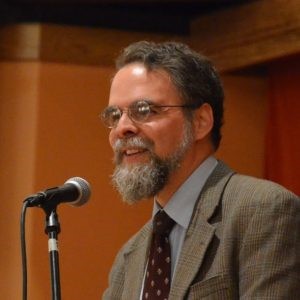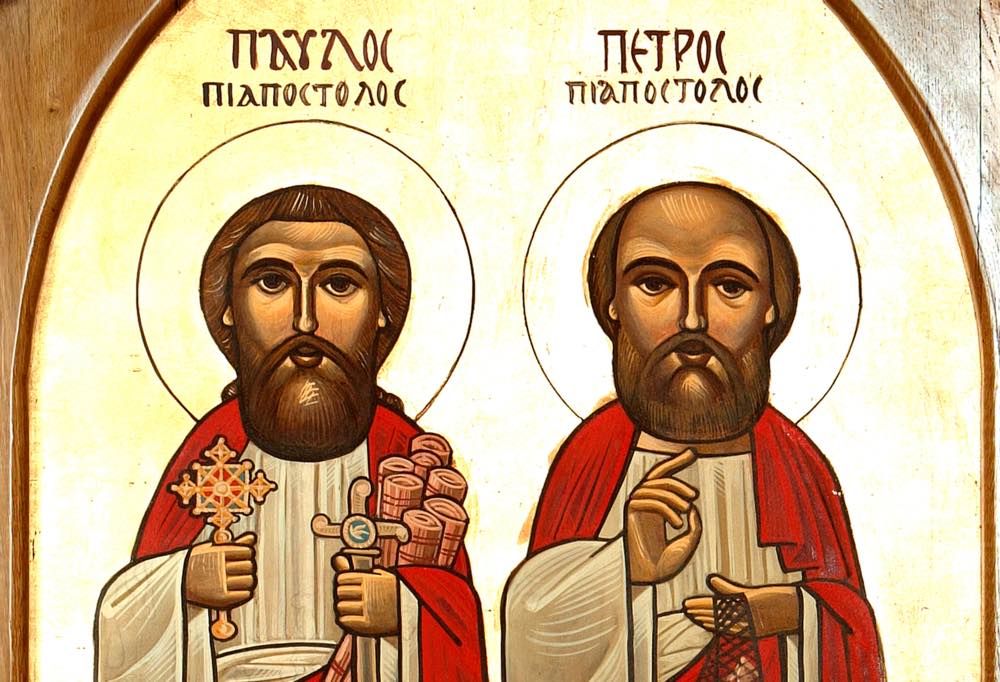– Aurelio Porfiri
One of the most known Catholic intellectuals is Dr. Peter Kwasniewski, an american scholar who has devoted most of his studies to the theme of liturgy and liturgical developments. It is no surprise that most of his book deal with this very topic, as Tradition and Sanity. Conversations & Dialogues of a Postconciliar Exile (2018 Angelico Press). This book is, as the title says, a collection of interviews and essays on which the author points to some of the challenges liturgy is facing in our contemporary Church. The book also includes two interviews this author did for O Clarim. The work is a highly readable book. You may need just a few hours to read it from cover to cover. Someone may disagree with some of the author’s statements and positions but it is, nevertheless, worth reading to make sense of the interesting times in which we are living.
Can you tell us the origin of your book?
Over the years people have interviewed me, and readers would say that they found these interviews an approachable and helpful entry into the world of Catholic tradition and the liturgy, which can sometimes seem formidable or complex. Again, the fictional dialogue is a classic way to work out certain issues in the form of a debate or discussion, rather than the expository form of an essay or monograph. So it seemed to me a good idea to collect these pieces together as a readable introduction to the concerns of traditionalists.
Do you think the interview format is more appealing to your readers? You also included two interviews you did with me for O Clarim.
I suppose it depends on the reader. Some might be looking for heavy-duty scholarly analysis or critique, and they won’t find that in interviews. But others often want to know “How can I articulate the case for Tradition in everyday language, in a vivid manner?” The contents could be described as tools for apologetics.
There were some talks in the past, also from Church leadership, about a possible merging between the Ordinary and Extraordinary Forms of the Roman Rite but, if I remember correctly, you were not really in favor. Why?
No, I’m definitely against any mixing of the so-called “forms.” They are too different from one another. Of course, the Novus Ordo is very flexible and open-ended, so it can be “traditionalized” fairly easily, at least as regards external features; its eclectic reconstructed antiquarian euchology and rubrical imprecision are a problem of a much greater magnitude. But the Tridentine liturgy is coherent, strong, definite, and complete, so it would only be maimed by the importing of postconciliar elements. Just to take a quick example: the Prefaces of the new missal are often of a very different style and purpose than the Prefaces of the old. They are like apples and oranges. The Collects, too, for the saints, have a different “feel” to them, based on a somewhat different theology of merit and intercession.
This year is the 15th anniversary of the death of Michael Davies. I am writing a little book about him. What are your thoughts about this Catholic apologist?
Basically, Michael Davies was and is a hero, a role model, a source of inspiration. I met him only once in person, in Arlington, Virginia, when he gave a lecture on the Vendée uprising. Afterwards I met him and, like an infatuated fan, told him how much I admired him. He was the embodiment of modesty and simplicity, and was, I think, uncomfortable with his role on the world stage. But he did it anyway, because he passionately believed in the cause of preserving the great liturgical rites of Latin Christendom. Without him, I’m not sure there would be a Catholic traditional movement in the Anglophone world—at least not nearly to the same extent.
What do you think of the new situation of the Ecclesia Dei Commission?
As I wrote at NLM [New Liturgical Movement], I agree with Leo XIII’s assessment of politics: the arrangement of laws is one thing, the legislators are another. You can have a great constitution but terrible lawmakers (think of Ireland), and you can have a dubious Enlightenment constitution but good lawmakers (as happens sometimes in the USA even today). So how exactly the Roman Curia is set up matters a great deal less than the quality of the men in their offices and their desire to follow Summorum Pontificum. From what I can tell, there are still the right people doing their daily work. It remains to be seen whether the CDF will be willing to throw its weight behind correcting priests and bishops who refuse to follow the motu proprio—a problem that is still far too common, as I know from personal experience.
What is a good solution for the controversy between the Saint Pius X Fraternity and the Holy See?
The most charitable solution for souls would be to welcome the SSPX into full communion under the arrangement of a personal prelature (as enjoyed by Opus Dei), but without demanding of them adherence to the “doctrine” of the Second Vatican Council. It is enough to ask them to adhere to Catholic doctrine, and to leave open the discussion of difficulties in the texts of the Council. The Council’s very status as “pastoral”—something that was said repeatedly by John XXIII and Paul VI—as well as its refusal to make dogmatic definitions and anathemas result in a situation where the exact dogmatic weight of the Council is difficult to determine. I think that the Vatican in its dealings with the SSPX has not sufficiently taken this ambiguity into account.
What is the situation of American Catholicism now?
I do not consider myself any kind of expert on this subject, but it seems to me that, for all intents and purposes, the vast majority of American Catholics are basically Protestant in mentality: they do not see Catholicism as a divinely revealed religion given in the mode of Tradition, outside of which there is no salvation, and within which salvation comes to us through the reverent use of all of the sacraments and the living of a life of upright morals consistent with the Decalogue. Such an understanding of Catholicism is found among conservatives and traditionalists, who constitute a minority.
President Trump and American Bishops. Can you comment on their relationship?
It is a sad spectacle. The US bishops have an opportunity to work with one of the most Catholic-friendly, pro-life presidents in our country’s history, and instead they keep their distance, preferring progressive causes or the cowardice of non-engagement. Richard John Neuhaus used to speak of “the Catholic moment.” Something like that is in front of us, and we’re not taking advantage of it. In Church history, Catholics have generally been pragmatists rather than idealists. The Church languishes and dies in the West because of shallow episcopal idealism. I firmly believe that if even half the bishops of America become seriously politically active in a conservative direction, the culture wars would intensify and a social movement might be sparked.
The presidential elections are approaching. Do you think Trump will be reelected? What should be the position of Catholics?
I do not have the slightest doubt that a Democratic president would inaugurate the worst persecution of the Catholic Church—and, actually, of anyone who adheres to the natural law—that the US would ever have seen. So Catholics have a choice: Trump or persecution. Personally, I wish we had more and better choices, but that’s not the reality facing us.
What are your future projects?
Apart from lecturing and writing articles, I am working on my next book: a poetic and theological hymn to the beauty of the old rite of Mass, and particularly its heart, the Roman Canon. The book will also contain, I think, a presentation of the laws of organic liturgical development, with a double conclusion: the Roman Rite as we inherit it from the Tridentine period represents an apogee of development in the Latin tradition, while the revised liturgical rites repudiate this providential and pneumatological work. I have a number of other projects in mind, too—for which may the good Lord give me time, strength, and support! It is a very exciting time to be alive as a Catholic and working as a lover of tradition.


 Follow
Follow



“…for all intents and purposes, the vast majority of American Catholics are basically Protestant in mentality: they do not see Catholicism as a divinely revealed religion given in the mode of Tradition, outside of which there is no salvation, and within which salvation comes to us through the reverent use of all of the sacraments and the living of a life of upright morals consistent with the Decalogue. Such an understanding of Catholicism is found among conservatives and traditionalists, who constitute a minority.”
Bingo ????????